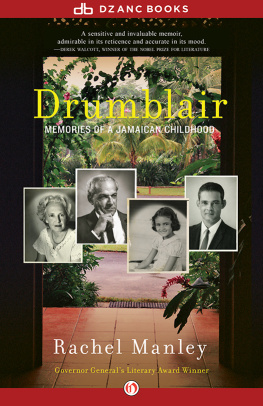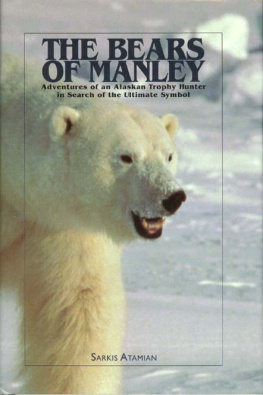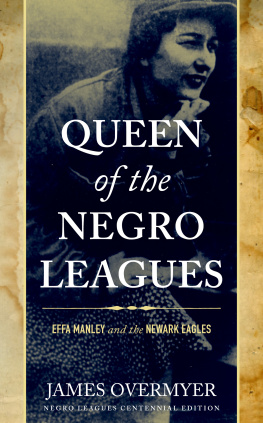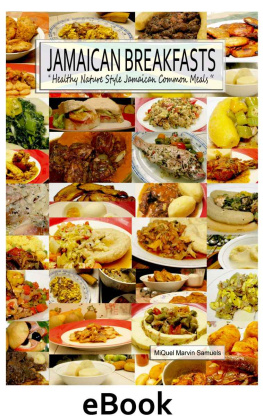Drumblair
Drumblair: Memories of a Jamaican Childhood
Rachel Manley

Other Works by Rachel Manley
Horses in Her Hair: A Granddaughters Story
Slipstream: A Daughter Remembers
All rights reserved under International and Pan-American Copyright Conventions. By payment of the required fees, you have been granted the non-exclusive, non-transferable right to access and read the text of this ebook onscreen. No part of this text may be reproduced, transmitted, downloaded, decompiled, reverse engineered, or stored in or introduced into any information storage and retrieval system, in any form or by any means, whether electronic or mechanical, now known or hereinafter invented, without the express written permission of the publisher.
Inner photographs courtesy of the Norman Manley Foundation, the National Archives of Jamaica, and the author
Copyright 1996 by Rachel Manley
Cover design by Steven Seighman
Dzanc Books
1334 Woodbourne Street
Westland, MI 48186
www.dzancbooks.org

This 2013 edition distributed by Open Road Integrated Media
345 Hudson Street
New York, NY 10014
www.openroadmedia.com

Many people helped, but very specially:
Michael and Glynne Manley
Douglas Manley
Louise Dennys, Susan Burns, Gena Gorrell
Ian Randle
Melanie Martinez
Joan Beckford
Tony Bursey and Cookie Kinkead
Rex Nettleford and Tony Bogues
and Israel, without whom
Prologue
I am three or four years old, and I have a bear on my bed with whom I share a till-death-do-us-part love. There is a tall, white-haired woman who wants to be my grandmother. I like her, but I remember that I have one already back home who is not restless or wild, and who likes to be called Granny. This new one tells me to give her a name that will make her ancient and timeless. I name her Mardi.
People looking for names. Names looking for people. Daddy and Mummy are names looking for people. Daddy will soon have a person, Im told, for he is coming to join me, but Mummy is a word without a person. I try not to say that word, and sometimes, when I do, it lands numbly, like the moo of the mute in Harbour Street with a little flourish at the end.
And theres a brown man here who I know is my grandfather. I always see his clean, cracked black leather shoes first; then, farther up, his waistcoat with a shining little chain. He is always dressed the same, and when I look at his face he is smiling at me under his nose, but I know he looks serious as soon as he turns away, or he removes the two small dimples of mischief out of his smile. I love his nose, it is smooth and strolls down his face on a comfortable walk, and I know I can depend on him with that nose. Each morning I pick a red rose-bud for his nose. He sniffs it like a Vicks inhaler, then puts it in a buttonhole on the front of his jacket, for it hasnt got a button.
I know he loves me, and I call him Pardi.
Theres a white dog called Wog who always wants to be with me, and a yellow-eyed cat called Percy whom I sometimes stroke, till I get the feeling he believes me; then, if I can, I grab him by his tail and spin him. He is always so surprised and betrayed, and fights against the torrent of passing air and seems to yowl through his tail till I lose my grip and he runs away for days. I mean it; its not a game. I hear and see his pain; I cause it. I am glad its not happening to me.
At night my grandparents are mostly out, and I discover I own the top floor of this big house. The doors are large and heavy, and they obey me, their stiff handles plunging their tongues in and out, opened and closed. This amazes me. But the glass windows on their rough, dry sashes are too stiff for me. When Mardi and Pardi are out, there is a large, singing woman called Edith in a lot of bright cloth who comes through the door sucking peppermints. I think she belongs to me.
Things are brighter here. I have never seen such colours before. Theres a much younger sun who visits us every day, bringing this nice old lady, Miss Boyd, with her hair in a bun and a broken-down voice, and she sometimes brings a sewing machine, which makes all the wooden things in my room purr.
But my very best friend in the world is this big, wooden house. Soon I know all its secrets, its cottony-dusty areas along the spaces left by cupboards not flush with the walls, which hide pencils and stamps and a green swirly marble; I know the way the boards join each other like skin to fingernails; I know theres a birds nest under the roof just left of my window, and one for ants under my grandfathers windowsill. I know its a grumpy house sometimes, but I can get it to smile. It is called Drumblair.
In late 1949, at two and a half years old, I arrived in Jamaica for the first time. I had crossed the Atlantic by air from England. My Jamaican father was studying in London, my European mother was sick, so in true Jamaican style I was sent home to my grandparents. Norman and Edna Manley lived in the suburbs surrounding the capital, Kingston, in a house called Drumblair. I knew nothing about themthey were strangers to mebut they were household names in Jamaica.
It would be years before I understood the significance of the home in which I found myself, and of the two extraordinary human beings who were suddenly part of my life. This serious man who saved his dimples for me would one day be Jamaicas premier, Father of the Nation to many people, and my own father would be prime minister of Jamaica for three terms. It would take me half a lifetime to understand our history and my familys contribution to it, and to see, past the thicket of my own feelings and ties, how they were pivotal to so much more.
Our history is only five hundred years old. The story of British colonialisms triangular trade to help finance the industrial revolution is well known. The first passage of the journey began in England with ships loaded with goods destined for Africa, where they were exchanged for slaves. This new cargo of souls was in turn transported to the Caribbean and sold for use as labour. The ships were then reloaded with sugar for a final passage home to England. When I was a child I learned these facts briefly and harmlessly in a gentle, competent school where many of my teachers were in fact British. In my home I learned a different version of history: of the betrayal of one tribe by another, and the human horror of the Middle Passage.
History has left us with deep insecurities, my grandmother would sigh. It seemed to explain many things to her. We lack that hammock of national belonging which cradles a people against historic falls, I heard someone else say, maybe my grandfather. I guess some nations feel theyve been there since the world began. We cannot think that. Our migrations, some forced, some voluntary, are too recent. All of us are new arrivalsthe Spanish, English, French, African, Indian, and Chinese. Those early inhabitants who could have sensed an original belonging were destroyed by the arrival of Columbus. With this brief and humiliating past, and a divisive geography of islands, we have had to invent ourselves.
Modern Jamaica grew out of no single act of collective violence. The Caribbean islands were too small to fight their own wars and define themselves by some glorious moment. We did not win our emancipation; it was an expedient concession made to us by the British Emancipation Act of 1833, arguably motivated as much by economics as by morality. Labour, now having to feed itself, actually became cheaper. The slaves who flew from bondage soon had to return to the plantations at starvation wages, with no political rights to do anything about it. Their freedom proved to be as much myth as reality. The British West Indian islands had a seemingly permanent underclass which lived in poverty and had no voice. A tiny middle class began to emerge in the nineteenth century. It was made up of mulattos, the offspring of plantation owners and female slaves. Plantation society could not function without supervisors and bookkeepers, lawyers and doctors; this class began to provide some of the skills, and helped keep Caribbean society functioning. Its members were always grateful not to have to earn a living in the cane fields.
Next page












